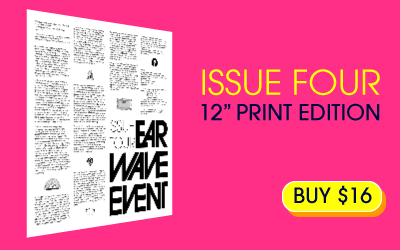
“Preamble To Our Realisation” is a subtle and unsettling piece of music; like a slow motion video of a telephone conversation whose pacing slows steadily as the speaker talks, or a conversation that gradually becomes more and more painful. The melodic counterpoint of Jim Barrett’s piano and Travis Watts’s drums is almost pleasant, revealing a reflective quality; it’s a conceit that works well with Barrett in the right mood.
“The Preamble To Our Realisation” was recorded at London’s SoundCity in December 2016. It takes its title from a passage in Thomas Middel’s The History Of The World, which comes loaded with references to the Crusades. “No one can defend the Crusades”, shouts Weaver over the opening “No One Can Defend The Crusades”. He’s joined by percussionist Richard Turner, who leads the counterpoint with a drum kit that’s heavy and steady. It’s an obvious reference to the 13th century battle for Jerusalem between Christian and Muslim forces. “And they set forth against the Muslims, and they came and assaulted the Muslims”, says Weaver, in a reference to the Biblical tale of the Jews facing the Muslims.
“The Preamble To Our Realisation” has a voice similar to that of Middel, whose much more subdued writing conveys a sense of a lost generation; similar is the emotional content. It’s hard to imagine what would make Barrett sing this history, or at least play it, in a more melancholy mood. It sounds like tender, but highly personal music, and it could be heard as just that, but it seems more like a tease.
Perhaps the best sign of how important and yet gentle this music is is when Weaver’s drums aren’t even mentioned. “No one can defend the Crusades” is a hollow threat, repeated as though it were the last song of its kind. The music that he makes on this record is like a small child refusing to let the grownup speak.















